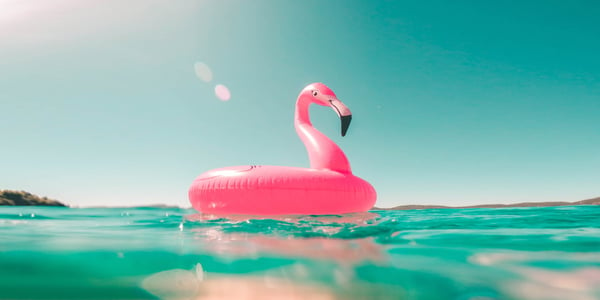For many, summer is is a time for travel, rest, and adventures. But - as fun as vacation can be, there’s also the inevitable stress and overwhelm that can come with it—especially if you (and/or anyone in your vacation crew) have attention-deficit/hyperactivity disorder (ADHD, formerly ‘ADD’).
Too long; didn’t read
The whole point of going on vacation is to recharge your batteries by going on new adventures, relaxing, and curbing your dopamine cravings by doing what you want to do. Whether you have ADHD or not, you can reduce the stress of vacation with these three key takeaways:
- Check in with yourself before committing to plans and excursions.
- Figure out what you need in order to relax and recharge.
- Don't be afraid to ask for – and do – what you want (within reason, of course).
In summary - take the time to fill your own cup.
You’ve earned it.
Vacation things that are extra stressful for ADHDers
- The extensive planning and preparation it takes to get ready for vacation can take a toll on our patience—something many of us don’t have a lot of in the first place.
- Sudden, short-term changes to our routines (you know - the routines that took a lot of our effort to implement and actually stick to?)
- FOMO, or the “fear of missing out”, is something that ADHDers are prone to feeling; it’s the belief that if we don't see and do everything while vacationing, we'll certainly miss out on something spectacular—which gets exhausting.
- All of the masking! Whether we’re going along with what other people want to do, or trying to hide the fact that we’re a bit overstimulated by all of the excitement—a lot of energy is spent when we’re trying to maintain the masks we use to hide our ADHD.
…I thought vacations were supposed to be relaxing...?
Fortunately, there are simple tricks anyone can use to help ease some of that turbulence. (No pun intended.)
How to reduce stress and anxiety on vacation: tips for neurodiverse humans
1. Don’t overbook yourself.
With all the excitement of going somewhere new, it can be tempting to over-saturate your itinerar—don't do it!
Resist the urge to do all of the things!
For example…
Check in with yourself before promising your aunt that you'll join her on that 3-hour sightseeing tour. As the wise Marie Kondo might say: only commit to it if it “sparks joy". And for you, that may look like ditching the tour bus and hitting the beach with a podcast about your latest hyperfixation queued up.
In that case, fight it! (...the urge to do all of the things—do not fight your aunt.)
💡 Pro tip! Settle on 2-3 things you "must do", with buffer time between those events. Allow yourself to enjoy those curated moments to the very fullest—that's vacation.
2. Accept and assert your neurological differences.
This is the time to exercise that confidence muscle and speak up!
Neurodiversity inherently makes us different, and that's okay! Accept it, ask for what you need, and try your best not to feel guilty about it in the process.
For example…
Maybe a friend on your vacation crew thinks you’re wasting time by reading or napping on the beach when there’s a zipline course to explore. But do they know that you've opted to have a ‘chill day’ because you're feeling burnt out or irritable?
It's O.K. to voice your needs and advocate for yourself.
Also - every relationship experiences conflict at some point, so it's important to remind yourself not to take disagreements personally (especially since everyone is out of their element while vacationing, increasing the likelihood of stress and conflict.)1
Accept the differences, but stick to your game plan.
3. You're allowed to do your own thing.
Be sure to schedule time during your vacation to do something just for you. Your travel buddies might appreciate the freedom and alone time, too! Dr. George Sachs, the clinical director at Inflow, shared an anecdote on this:
A few years ago, a friend from Norway visited me in New York City, and she'd brought her husband and teenage son along with her. When I asked what “they” were going to do on their third day in the city, I was impressed when she answered with,
“We’re each doing our own thing today. We all need some me-time.”
And at the conclusion of the third day, they all reported on their individual adventures—the three of them had successfully refilled their own "emotional cups".
Bonus tip on vacation transitions from an ADHD coach
![Quote: "We all know that people with ADHD struggle with [transitions]. It's hard enough to transition from home to work on a typical day, so you can expect an extra struggle after a period of time off. Transitions require a large amount of energy and effort to disengage from one activity and move to the next . . . I suggest scheduling a transition day to ease yourself back into your normal routine. Spend this time resting, regrouping, and preparing fully for a calm and productive day back at work."](/cdn-cgi/image/fit=contain,format=auto,width=null/https://cdn.prod.website-files.com/623a0044a408ef57d0c818a3/62bded8e4a3336340bf3b42a_svg%20quote.svg)






.jpg)

